How Portugal Won the War on Drugs
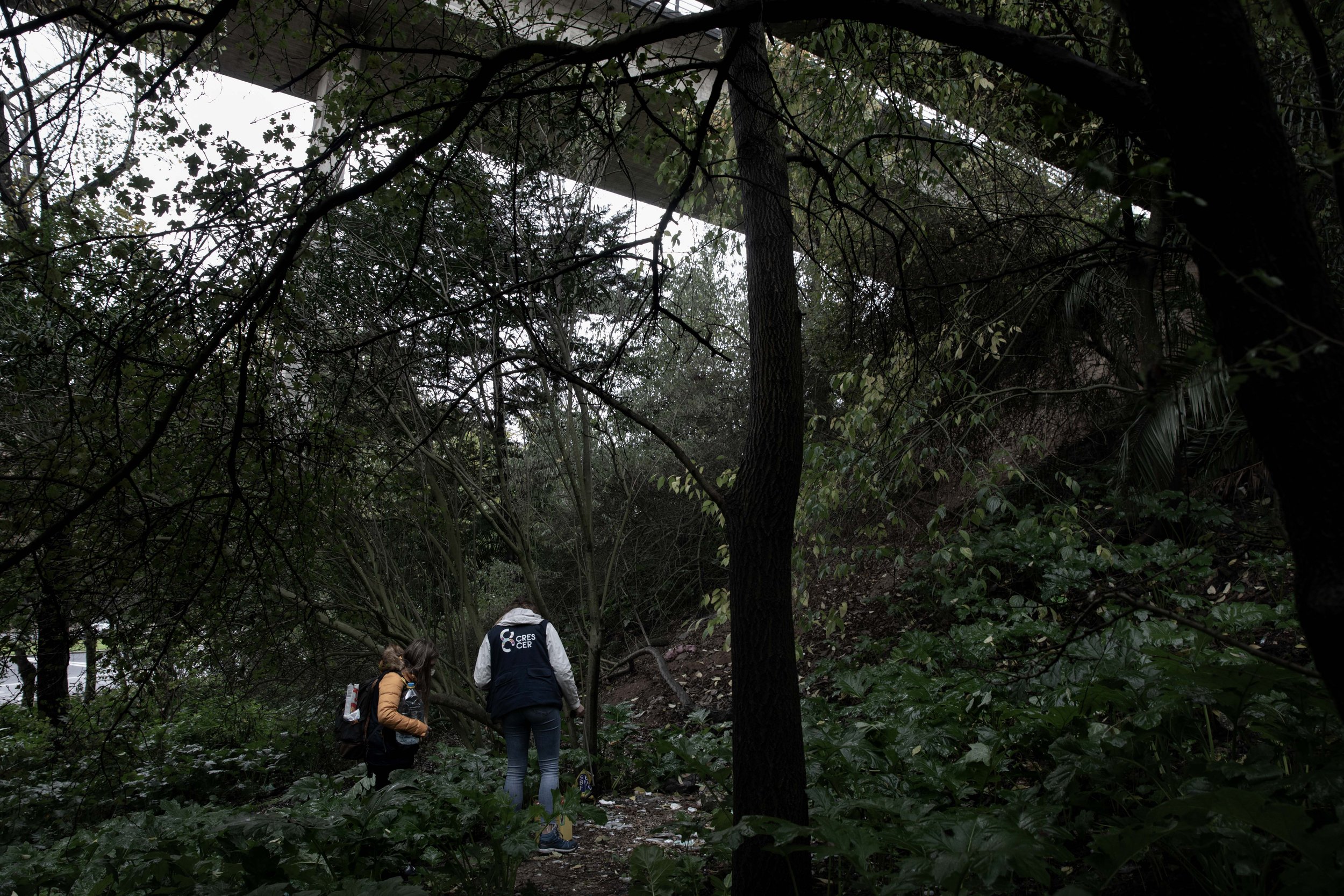
Two outreach workers for Crescer, an outreach organization, pick up discarded syringes at Avenida de Ceuta, Lisbon. 11/12/2020
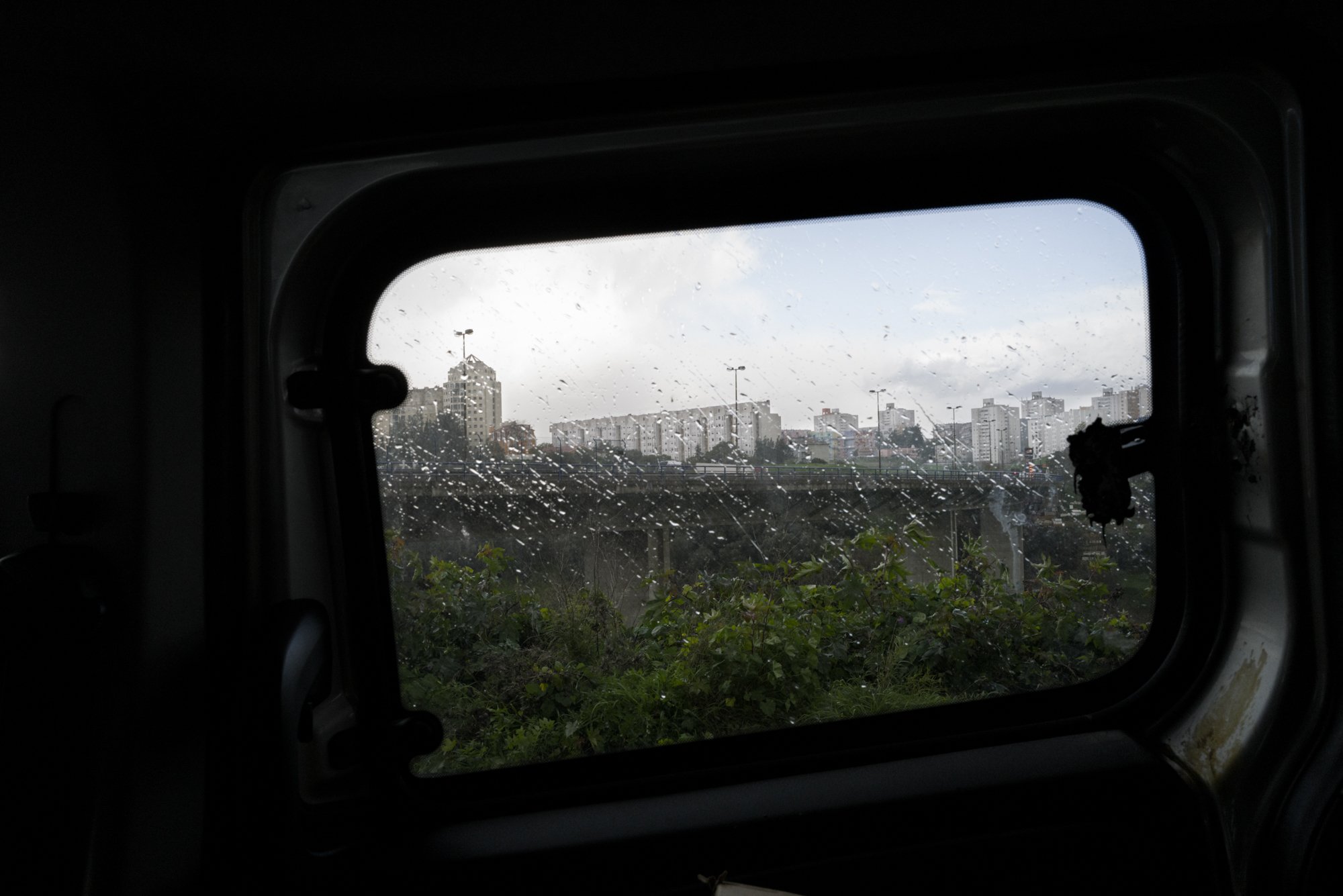
A view of Olaias, Lisbon, from Crescer’s car. For the past 20 years, two outreach teams made up of psychologists, social workers and nurses, have traveled to Lisbon’s many squalid and dark places where addicts use. 4/12/2020
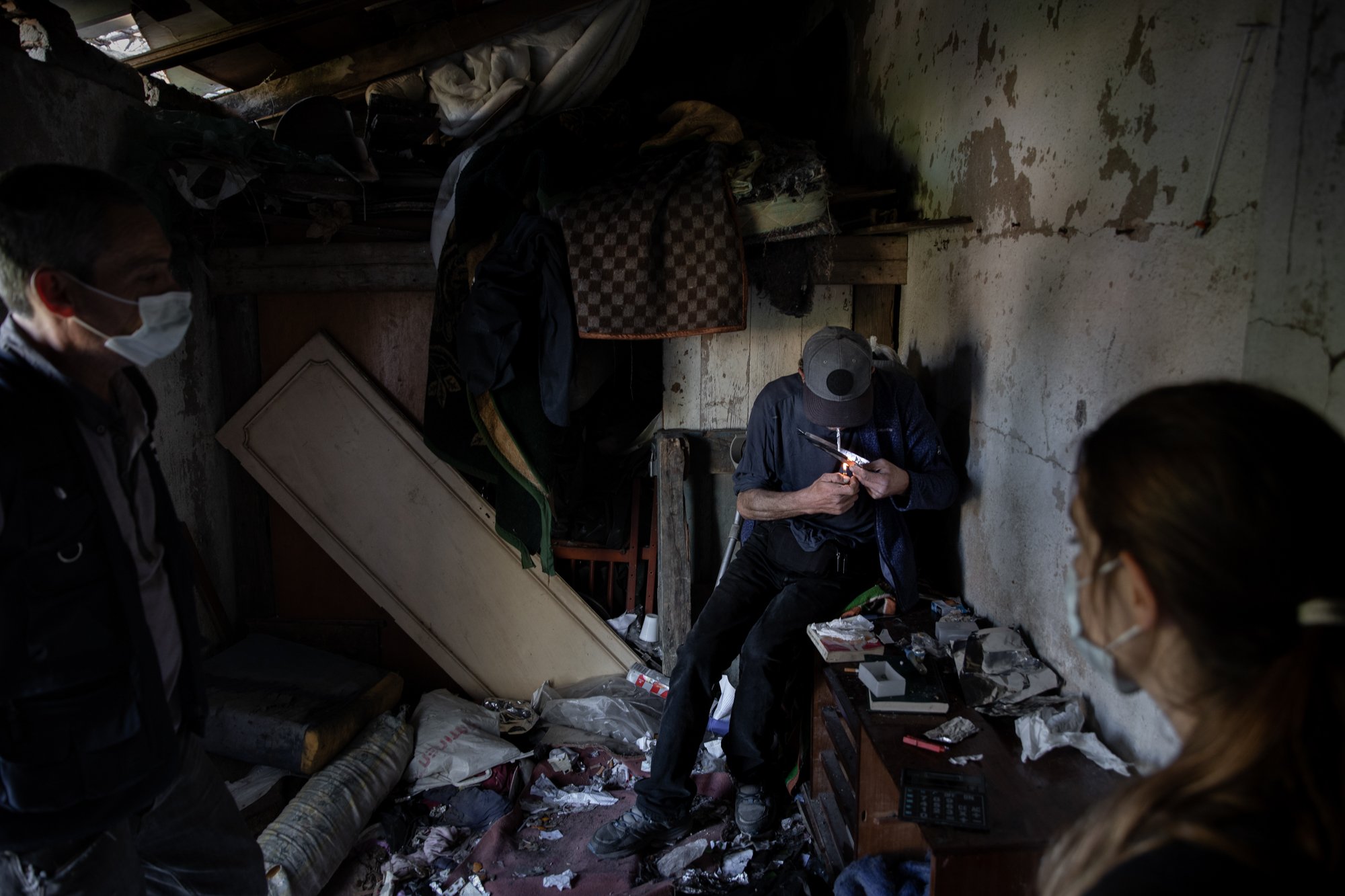
Two outreach workers, a psycologist (right) and a former addict (left) talk to Miguel as he smokes heroin at an abandoned house in Lumiar, Lisbon. 3/11/2020
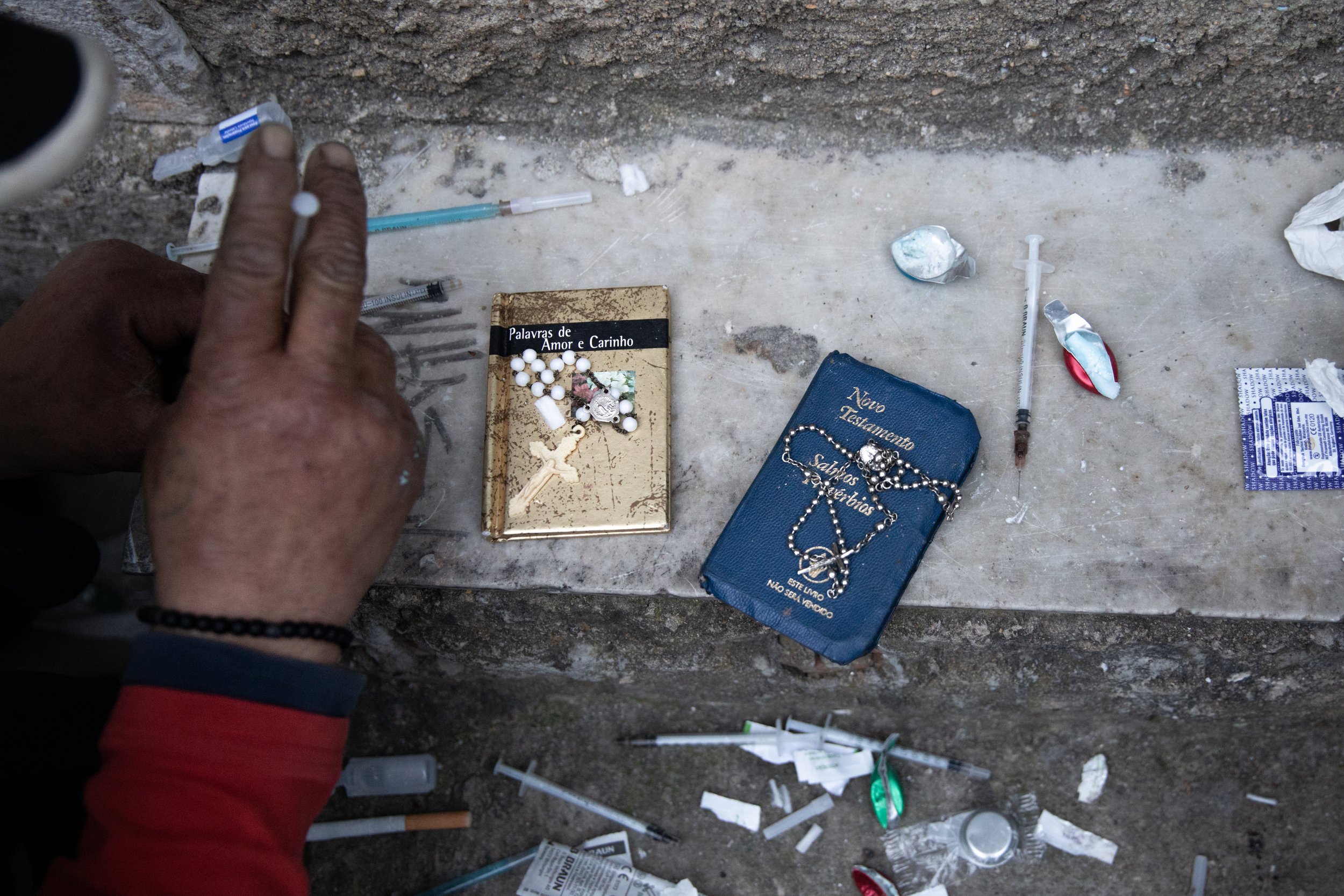
A man prepares a shot of Dormicum, an ansiolitic, in Avenida de Ceuta, Lisbon. With the Pandemic, other types of substances became more common. For the past 20 years, two outreach teams made up of psychologists, social workers and nurses, have traveled to Lisbon’s many squalid and dark places where addicts use. 16/02/2021
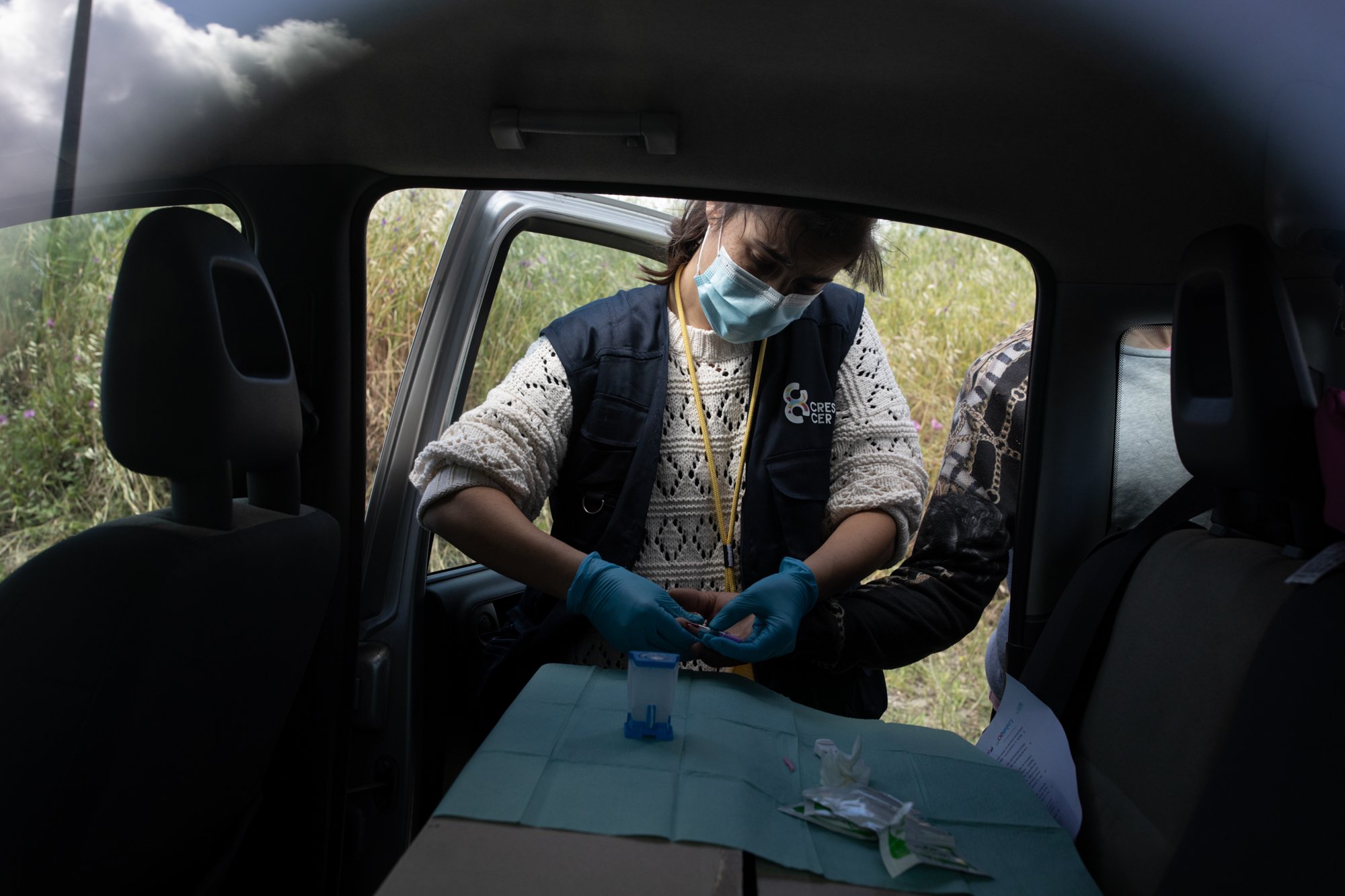
Inês Marinho, an outreach worker and nurse, takes a blood sample to test for Hepatitis C. 27/04/2021
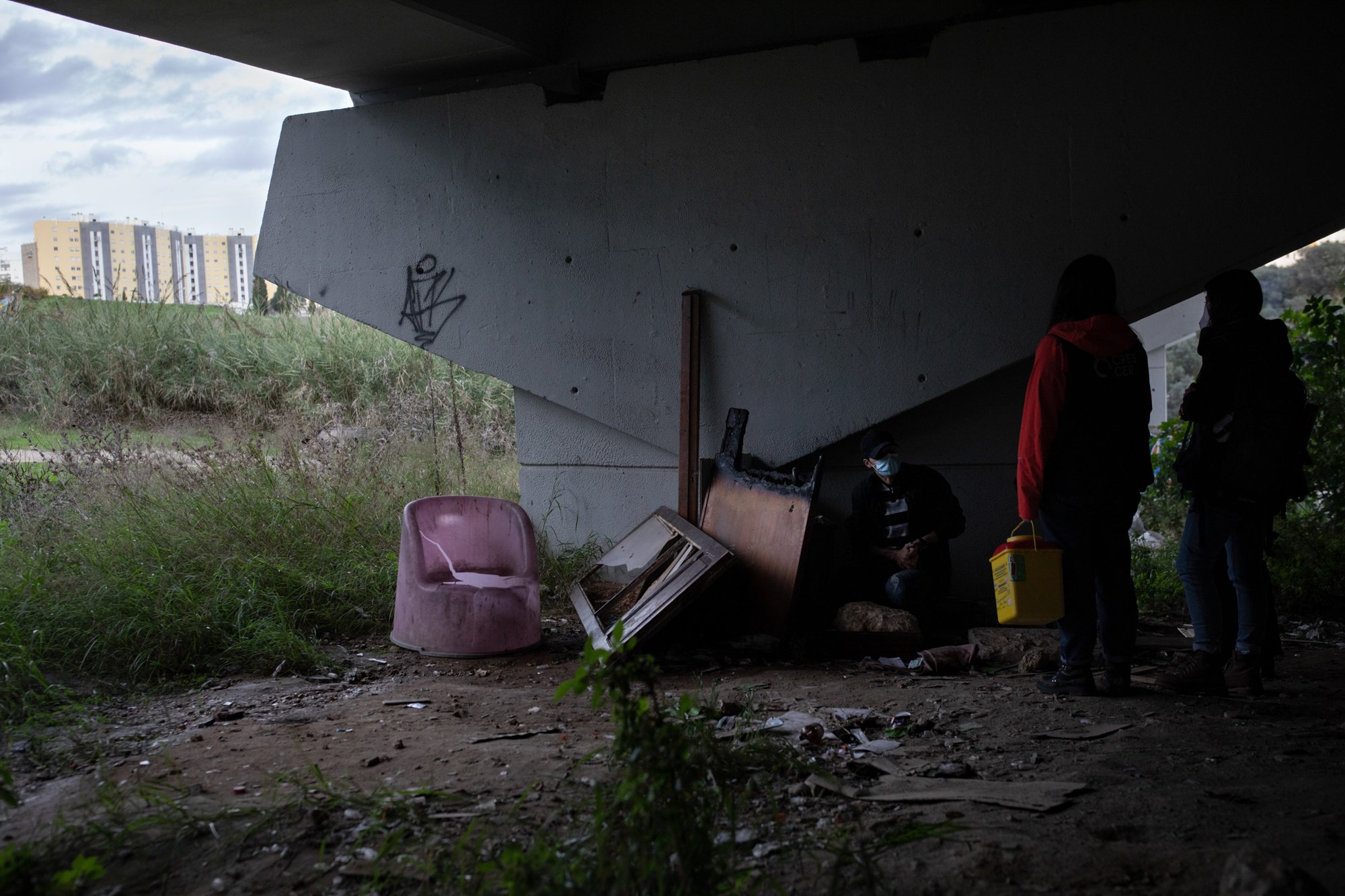
Two outreach workers talk to a man underneath a metro station in Olaias, Lisbon. 25/11/2020
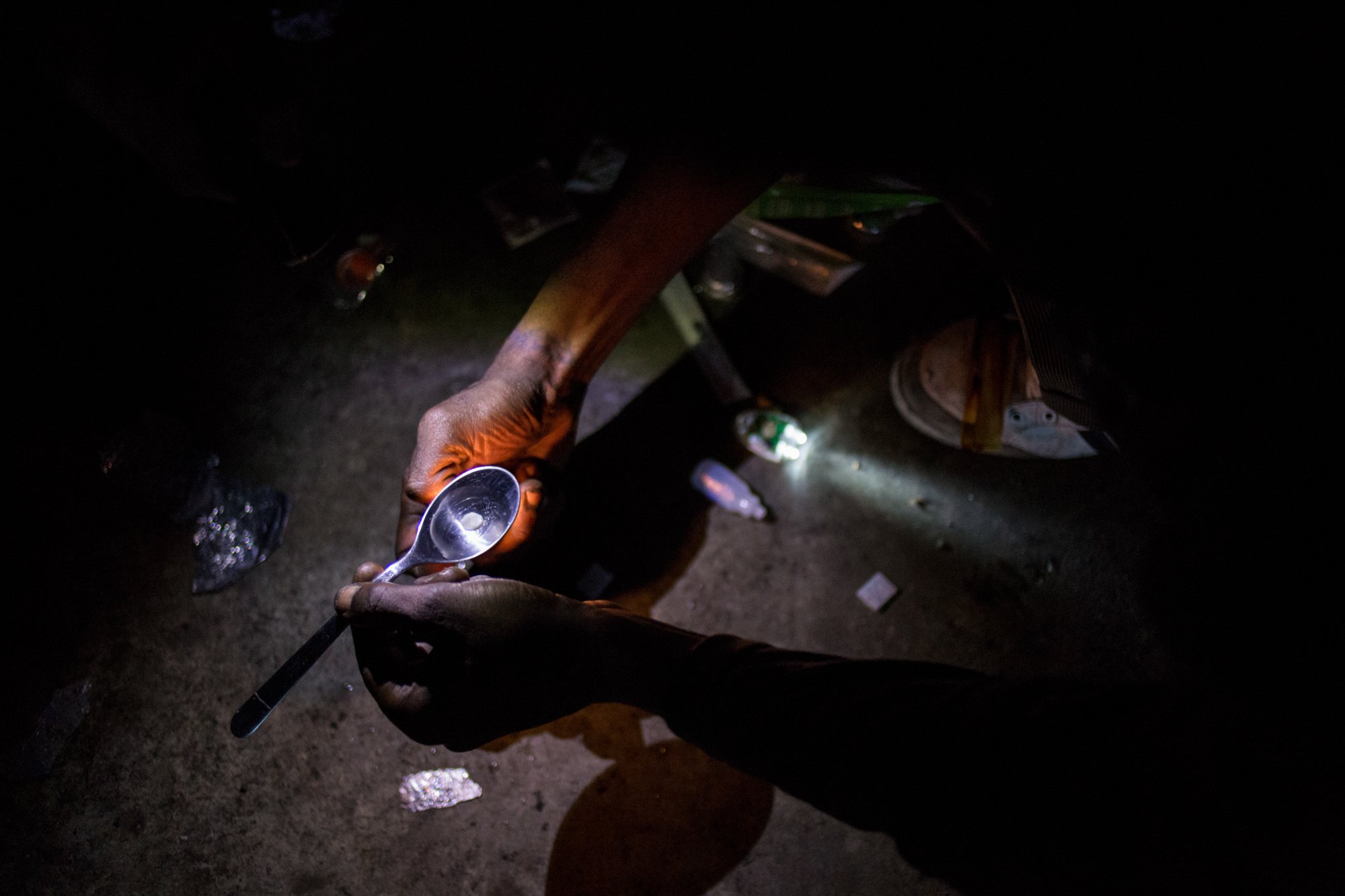
A man prepares a hit of cocaine with the kit provided by the outreach team, in Lamin’s room, near Casal Ventoso, in Lisbon; 6/02/2017
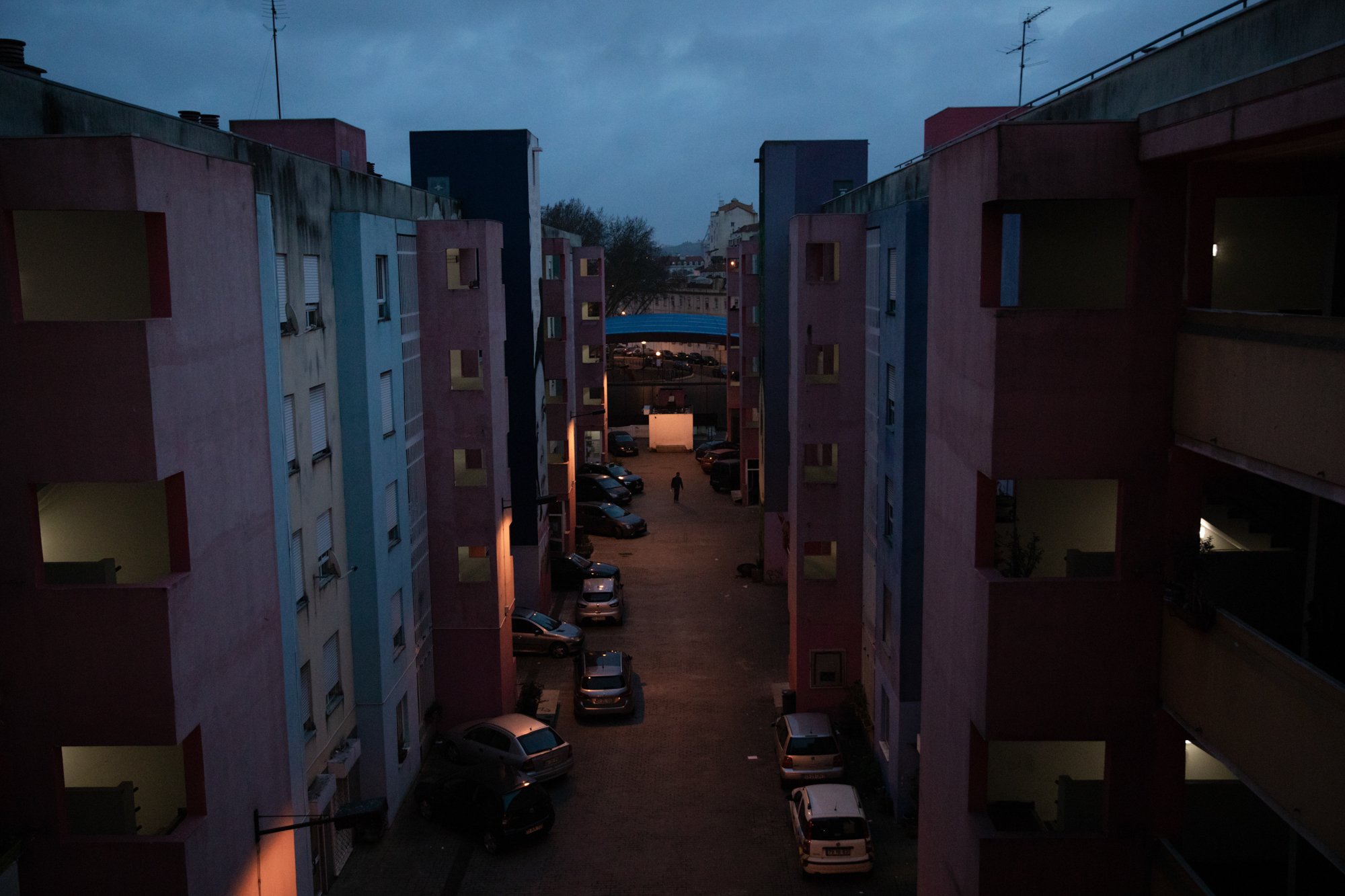
A man walks through Quinta da Cabrinha, one of the two public housing neighborhoods built after Casal Ventoso, Europe’s largest drug supermarket, was demolished in the 90’s. Lisbon. 16/02/2021
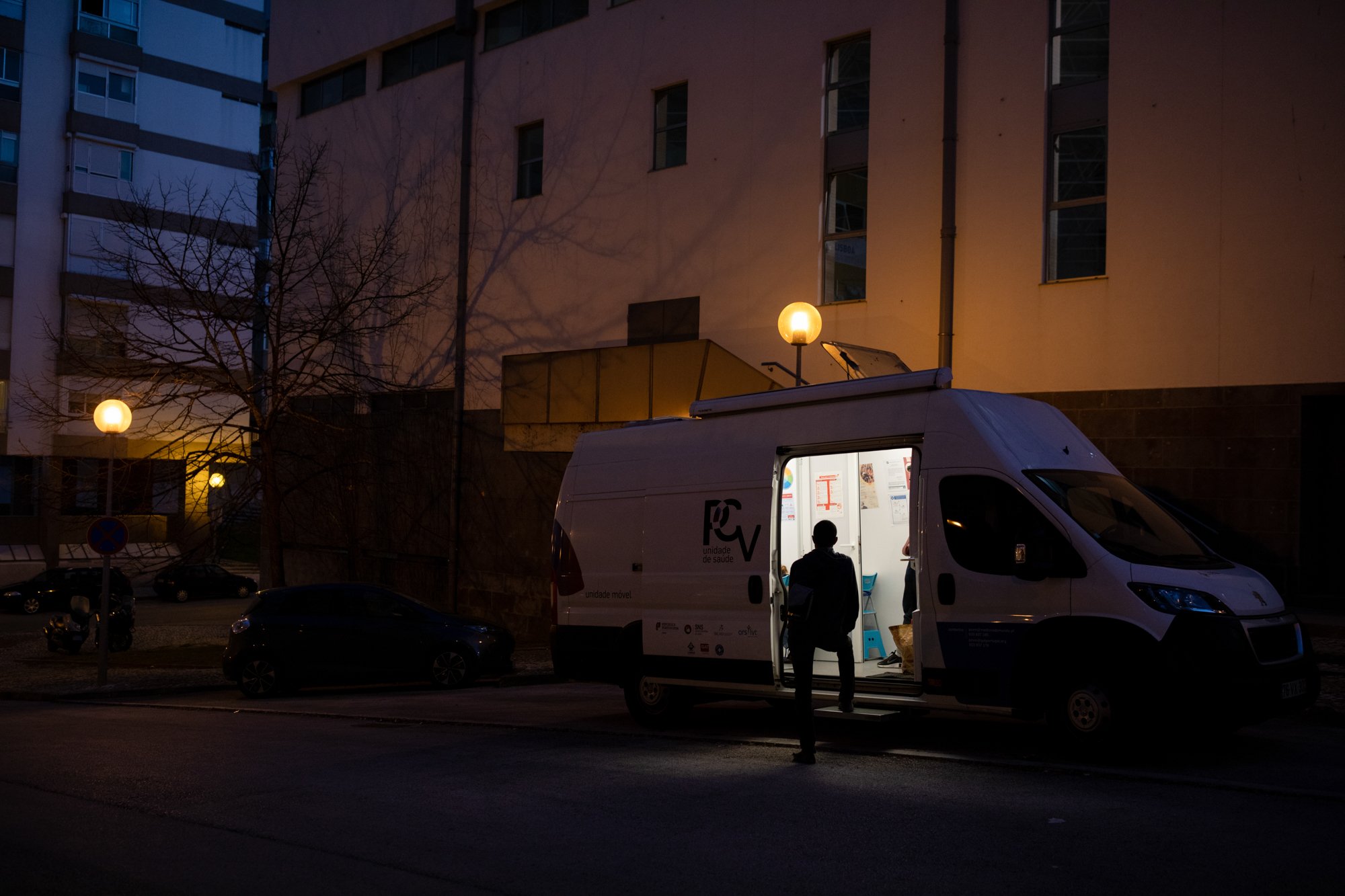
A user talks to Joana, a nurse, at the PCV, Lisbon’s Mobile Consuption Room. This pioneer program opened in 2019 and has paved the way for brick and mortar consuption rooms that are set to open in 2021 and 2022. 2/03/2021
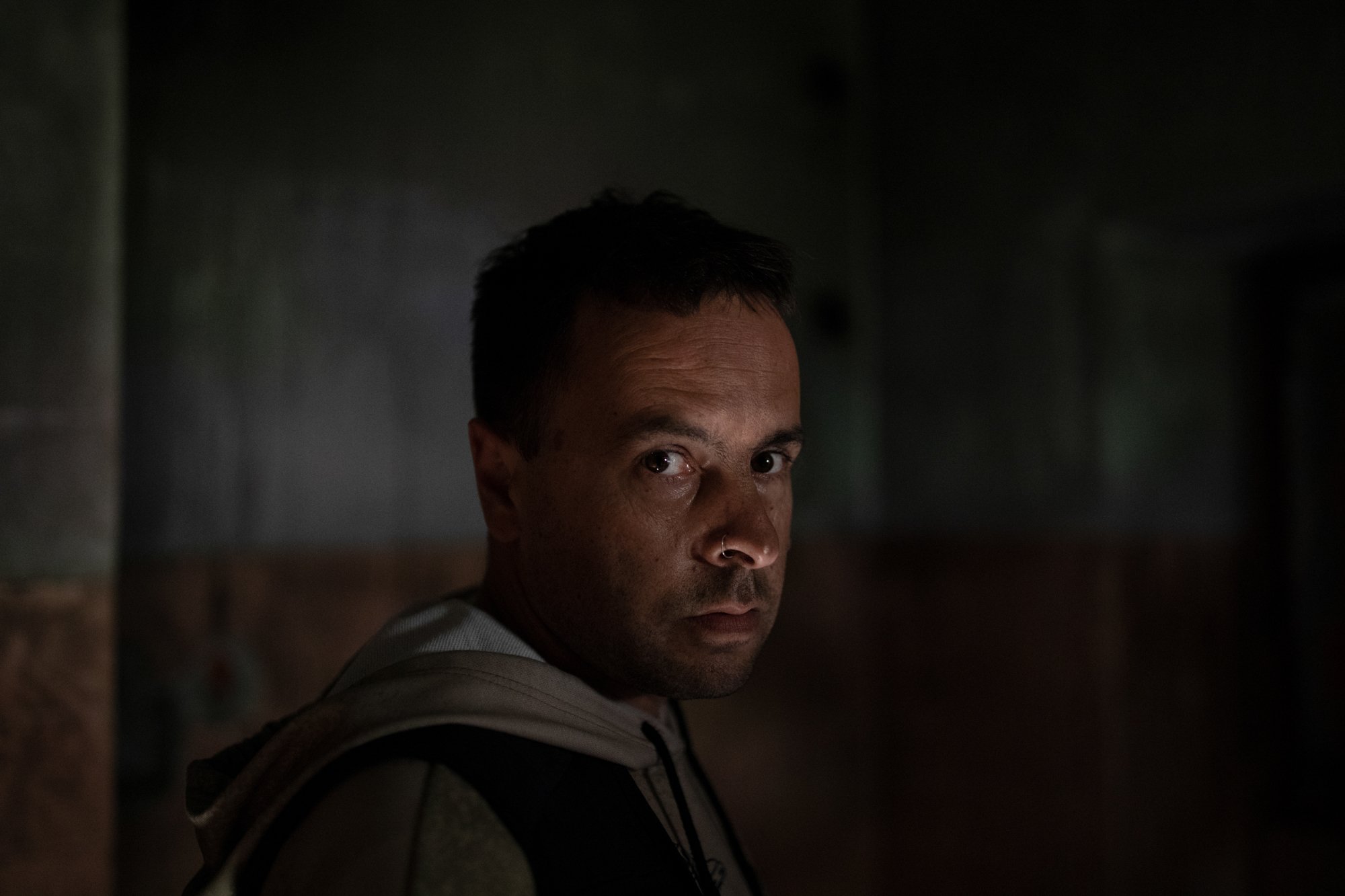
Martinho Silva, an outreach worker for Crescer, poses for a portrait. He used drugs for 20 years. Four years ago, after seeing the work of the outreach teams on TV, he decided to make it his life’s mission to help those who are fighting the same problem as he is. 20/04/2021
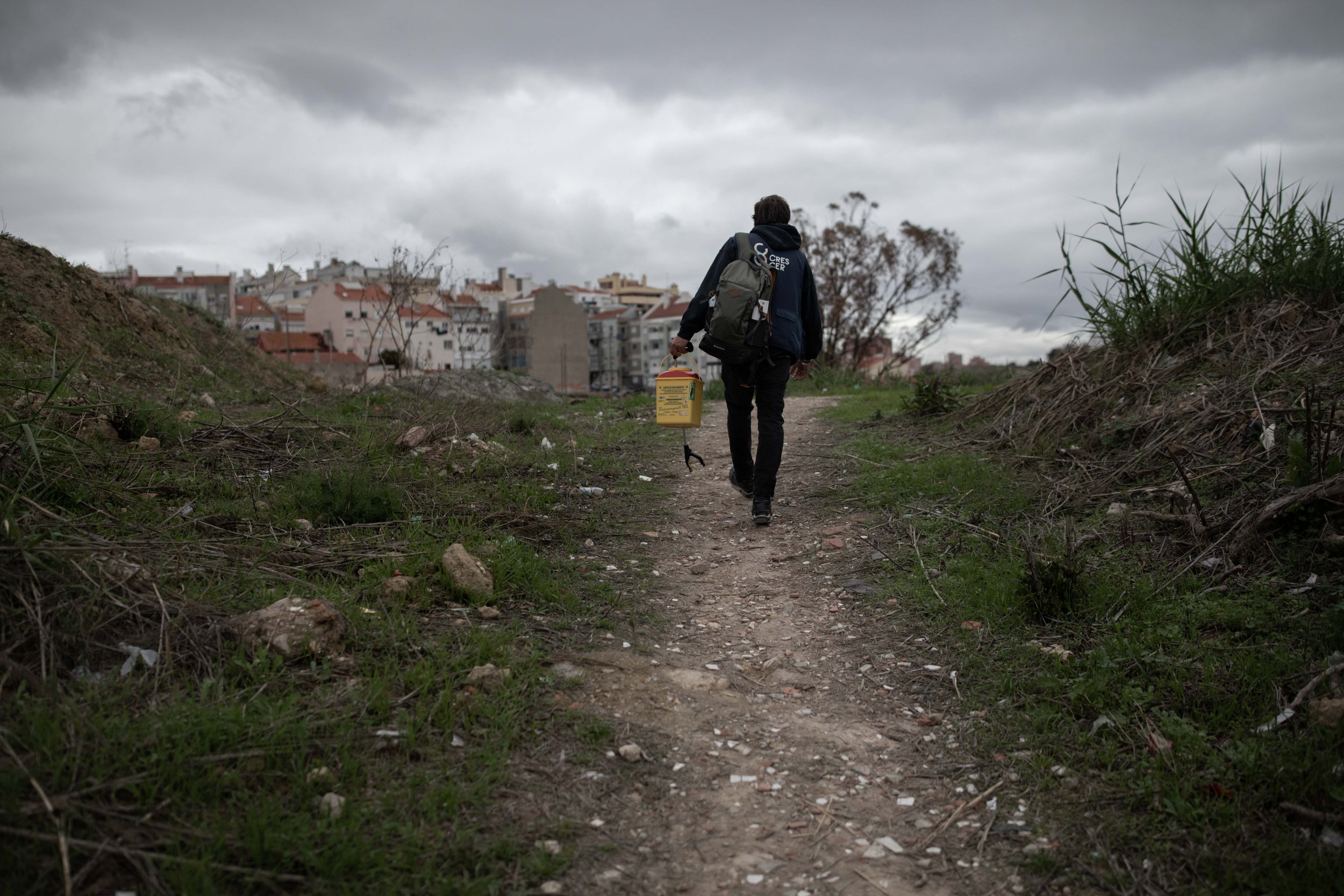
Martinho during his daily route in Picheleira. For the past 20 years, two outreach teams from Crescer, made up of psychologists, social workers and nurses, have traveled to Lisbon’s many squalid and dark places where addicts use. 2/11/2020
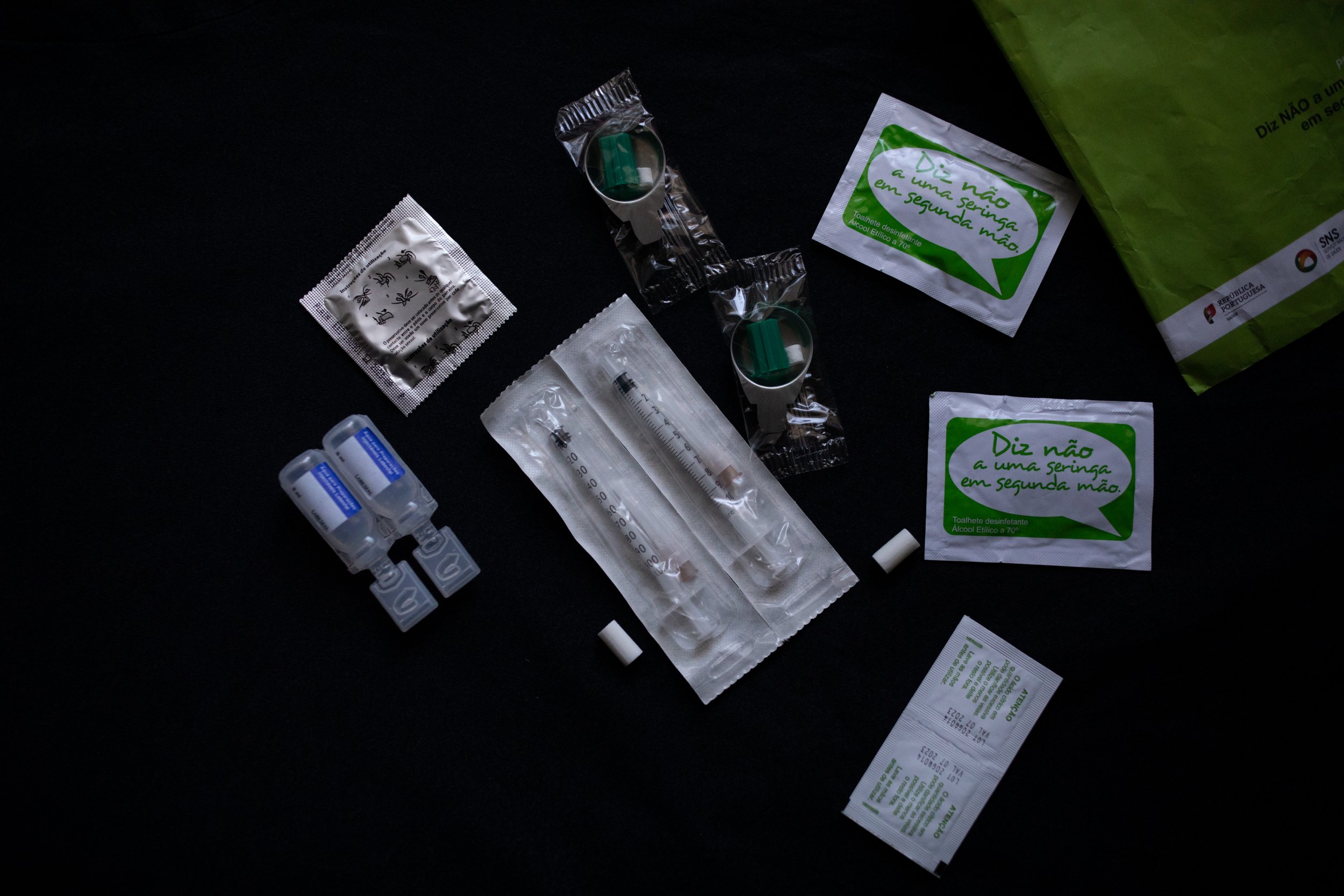
The Government sponsored injection kit that is handed out by the Crescer outreach team in Lisbon. 2021
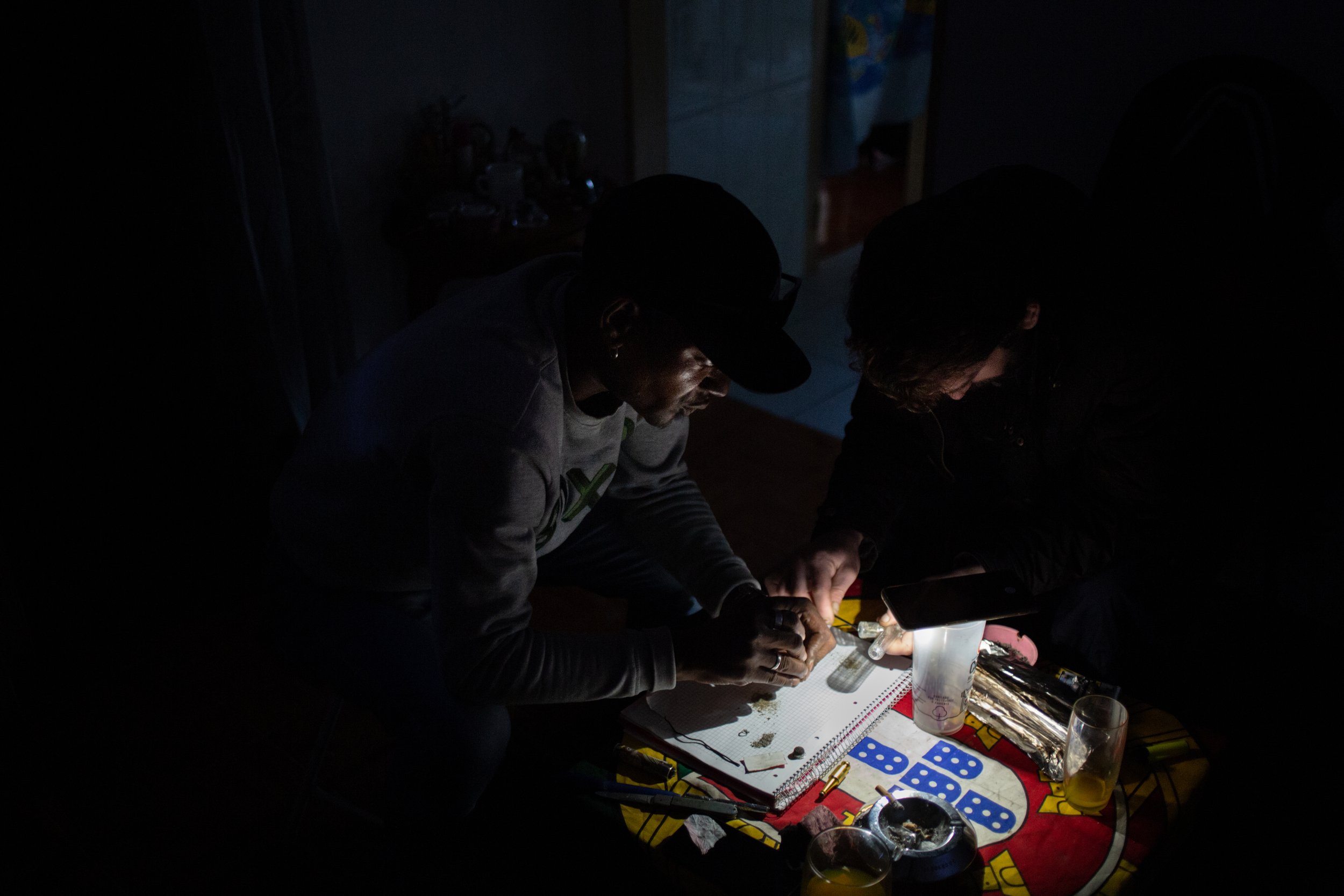
Two men, who have asked not to be named, smoke crack cocaine in a squatted house in the old Casal Ventoso neighborhood. At the height of the epidemic, at least 1% of Portuguese society was addicted to heroin. Nowadays, numbers are much lower. 14/12/2020
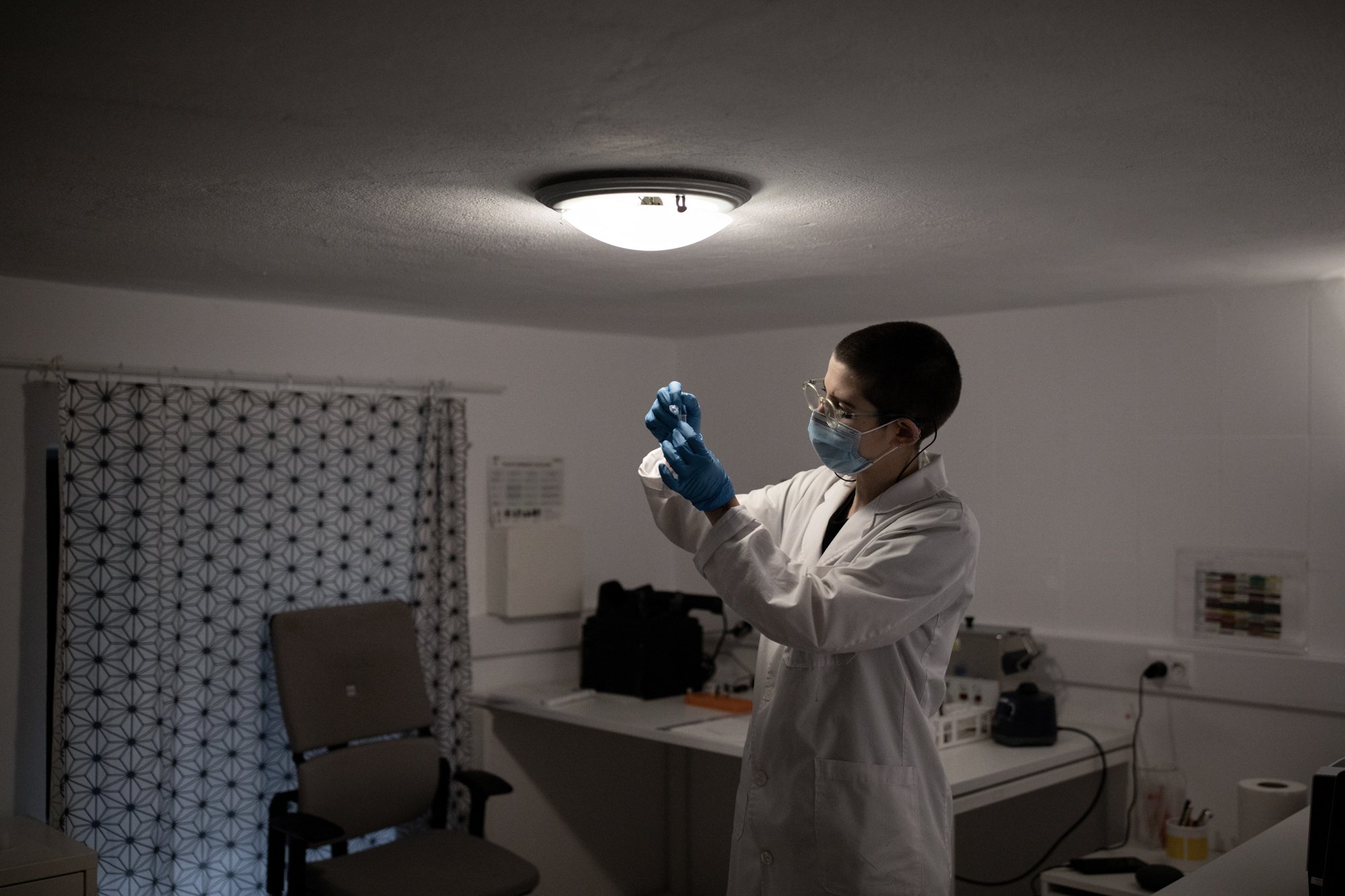
Mar (they/them), a chemist, checks a LSD sample at Kosmicare’s lab in Lisbon. Kosmicare is a government funded drug checking organization that allows users to test the substances they buy and develop a safer relationship to drugs. 1/04/2021
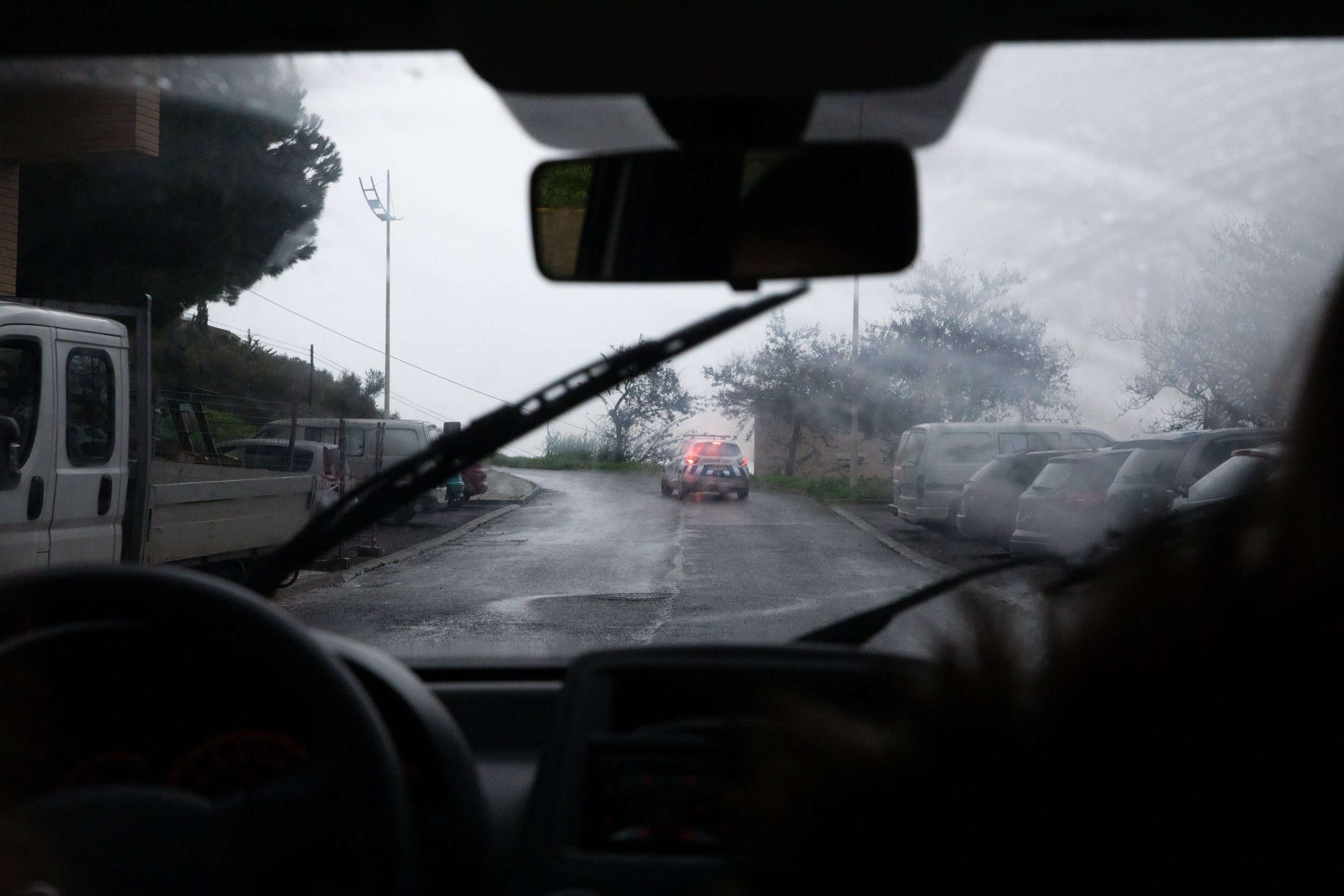
A police car patrols the area close to the old Casal Ventoso neighborhood. 16/02/2021
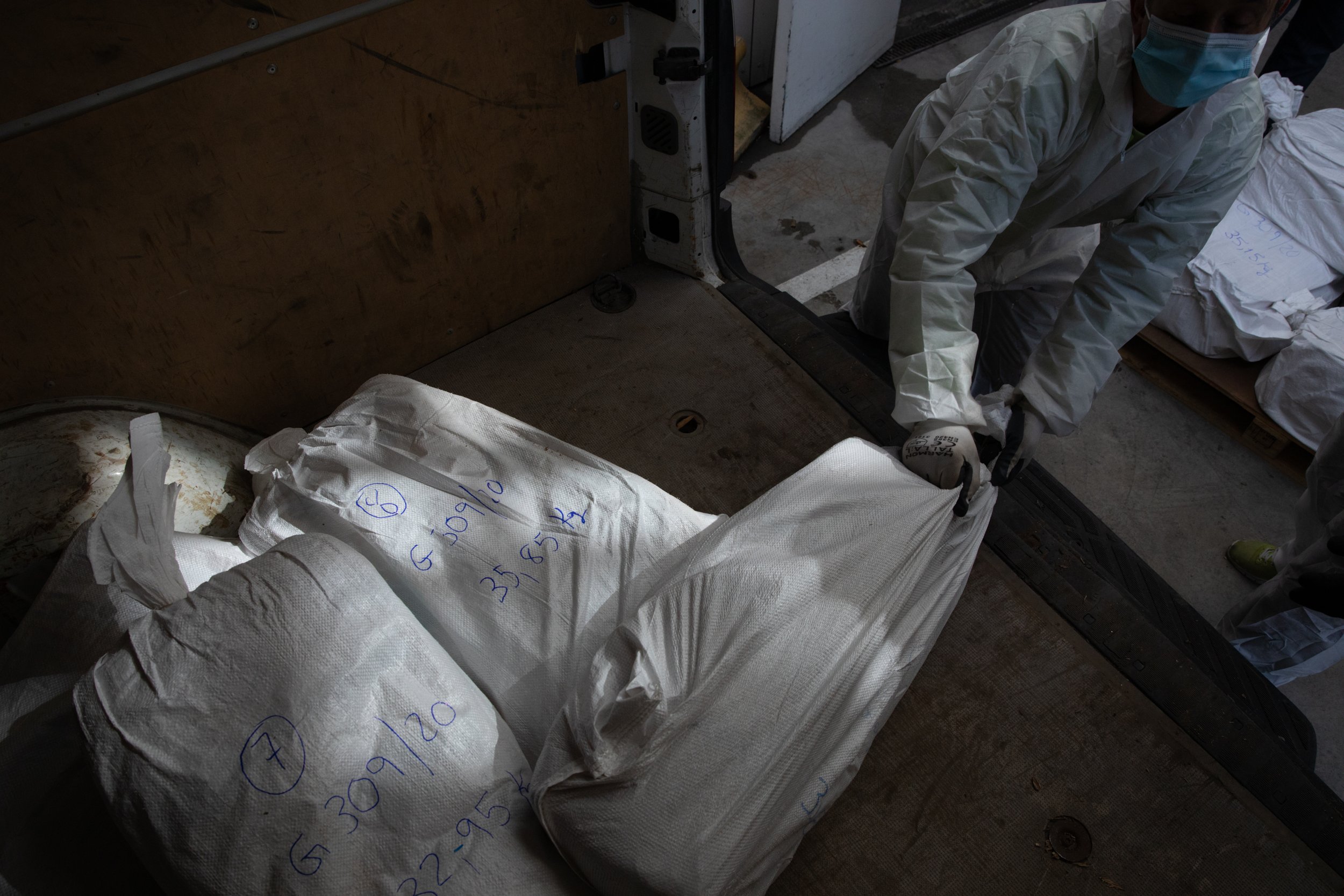
Bales of drugs are packed into trucks on their way to incineration. On this day, more than 8 tonnes of cocaine and cannabis were burnt at an waste management plant near Lisbon. By focusing resources away from low level offenders, the police and court systems were able to focus their resources on traffickers. 25/03/2021
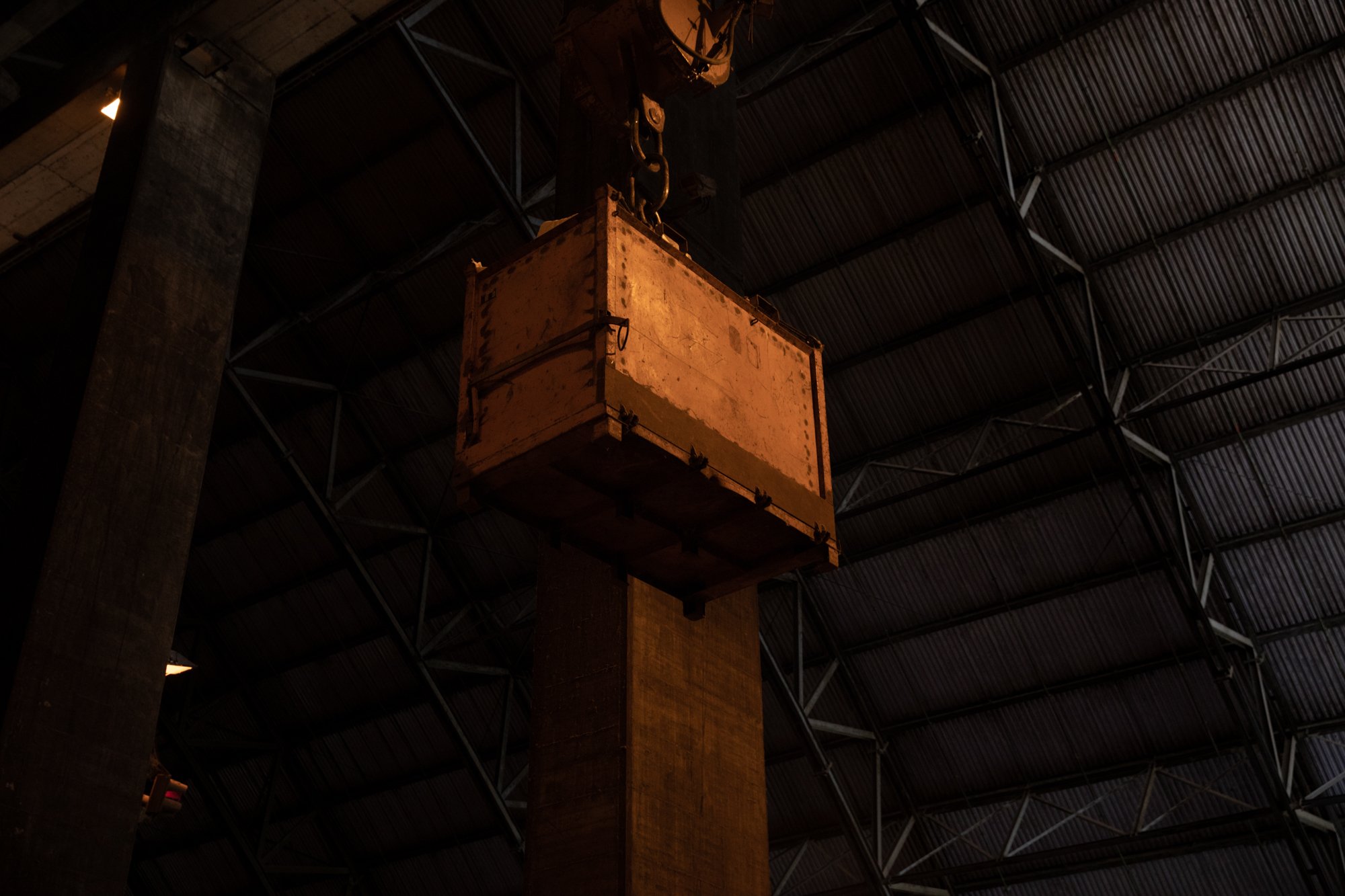
Bales of drugs get ready to be incenerated at an undisclosed location in Lisbon. On this day, more than 8 tonnes of cocaine and cannabis were burnt at an waste management plant near Lisbon. By focusing resources away from low level ofenders, the police and court systems were able to focus their resources on traffickers. 25/03/2021
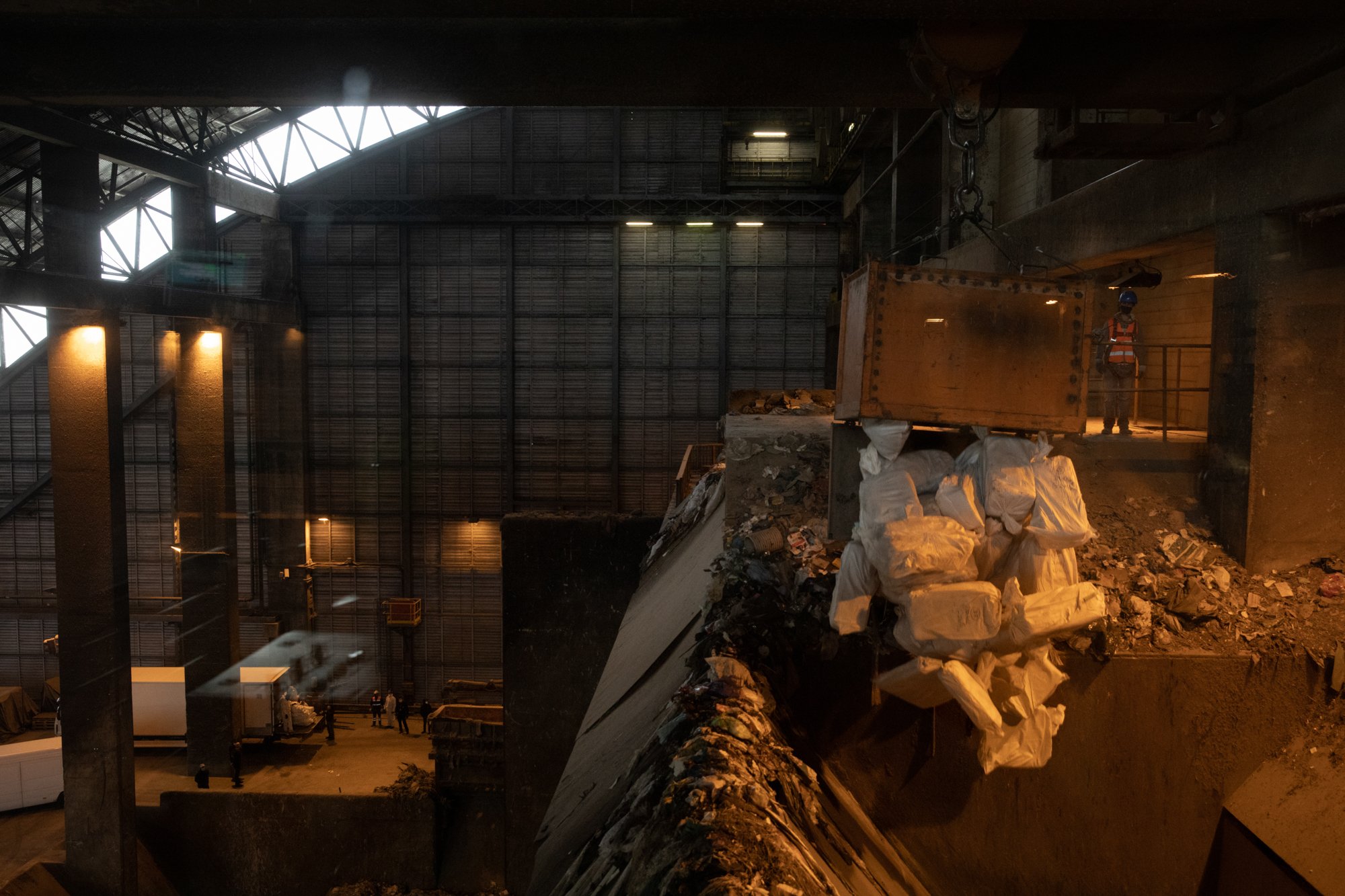
Bales of drugs get ready to be incenerated at an undisclosed location in Lisbon. On this day, more than 8 tonnes of cocaine and cannabis were burnt at an waste management plant near Lisbon. By focusing resources away from low level ofenders, the police and court systems were able to focus their resources on traffickers. 25/03/2021
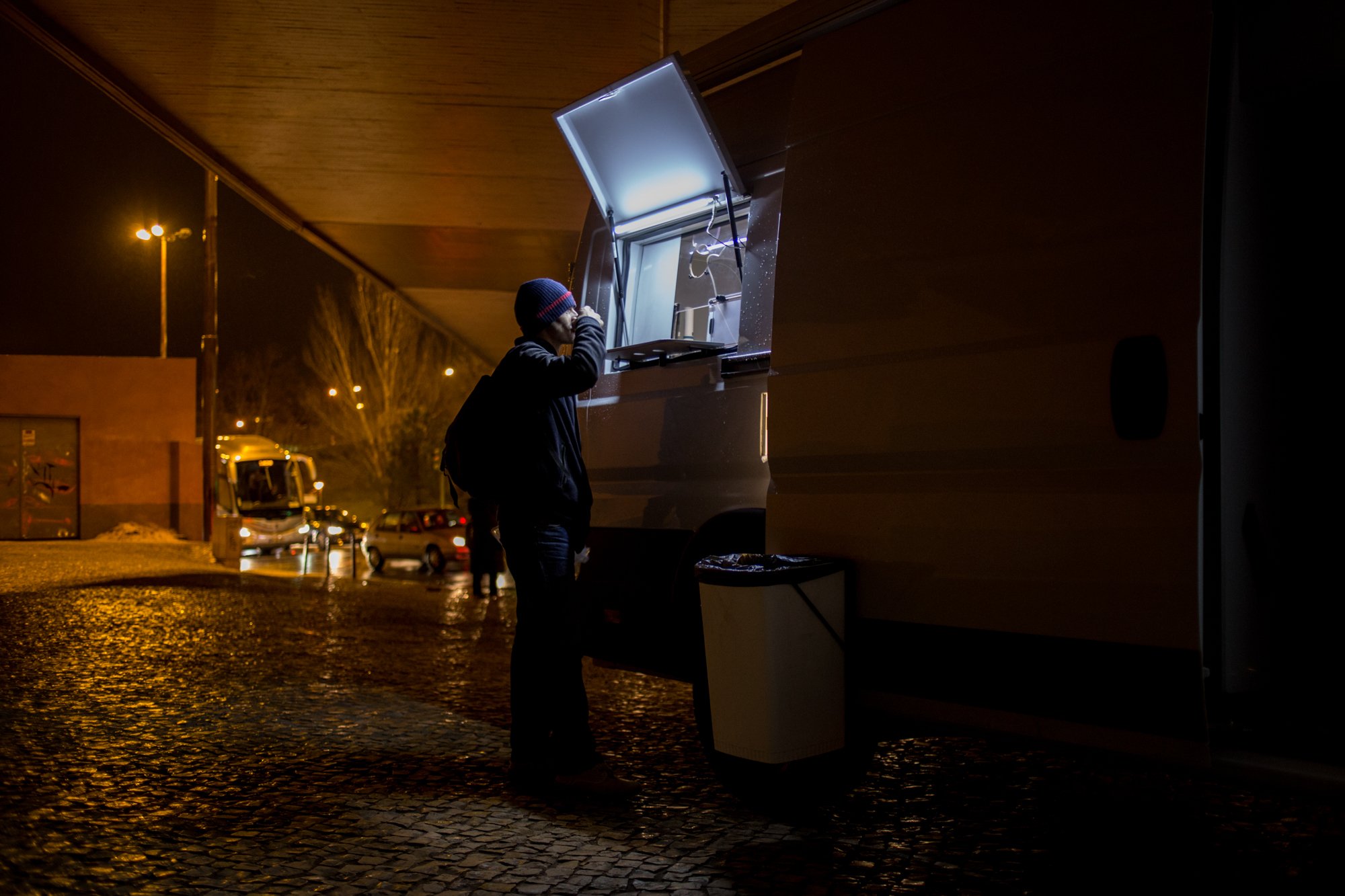
“I have been trying to escape this life, but it’s very hard” says Pedro, a 30-year old man at Praça de Espanha, one of the daily stops for the Ares do Pinhal methadone truck in Lisbon, Portugal. “The methadone helps, but ultimately, it has to come from me.” 09/02/2017
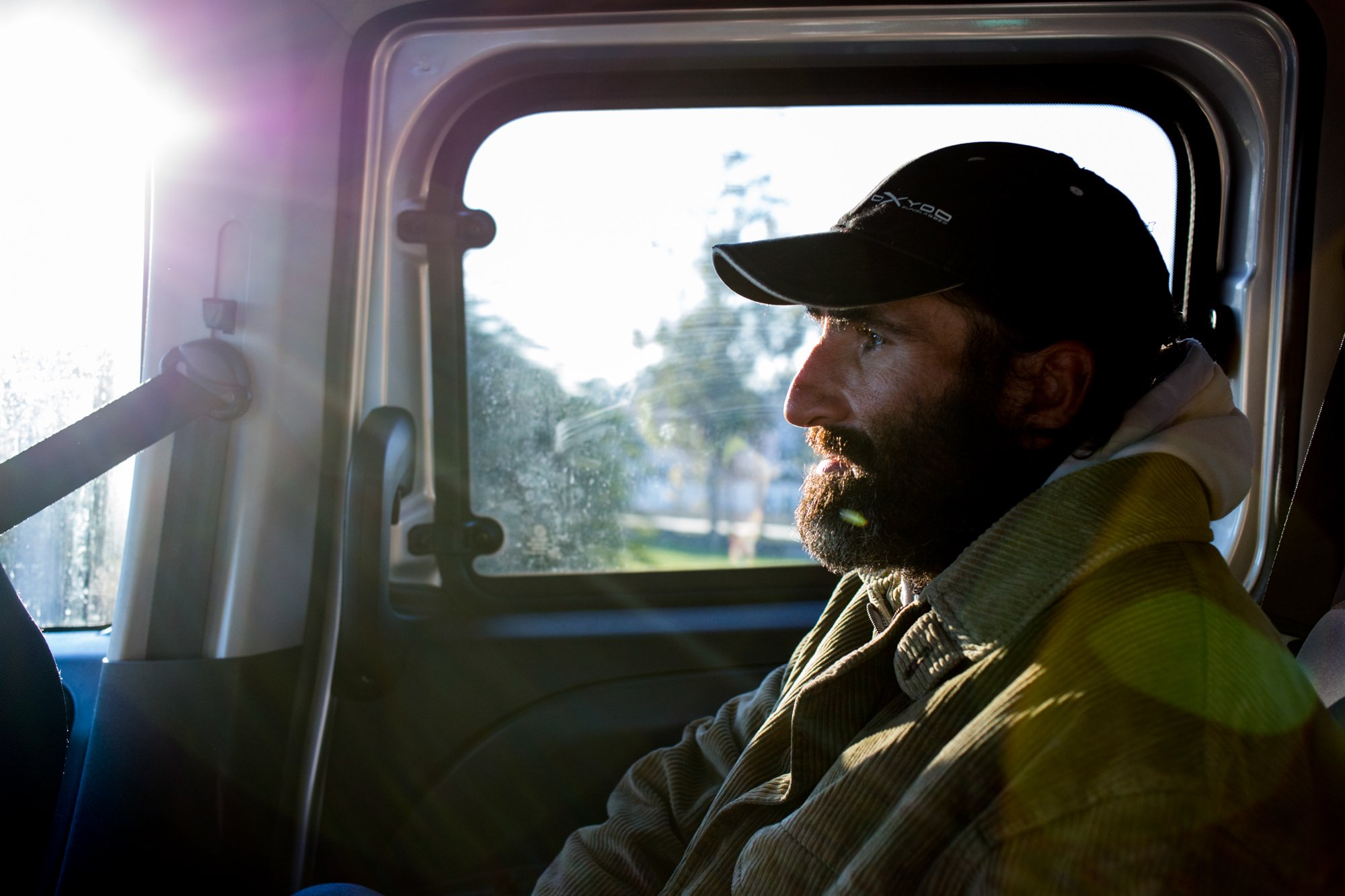
Carlos*, a 42 year old addict, on his way to a government funded Therapeutic Community, in northern Portugal. “For long term addicts, the only way out is to go and get treatment somewhere far away, distant from their daily routines and substance abuse” says Andreia, from the Crescer NGO` *name changed
23/01/2017
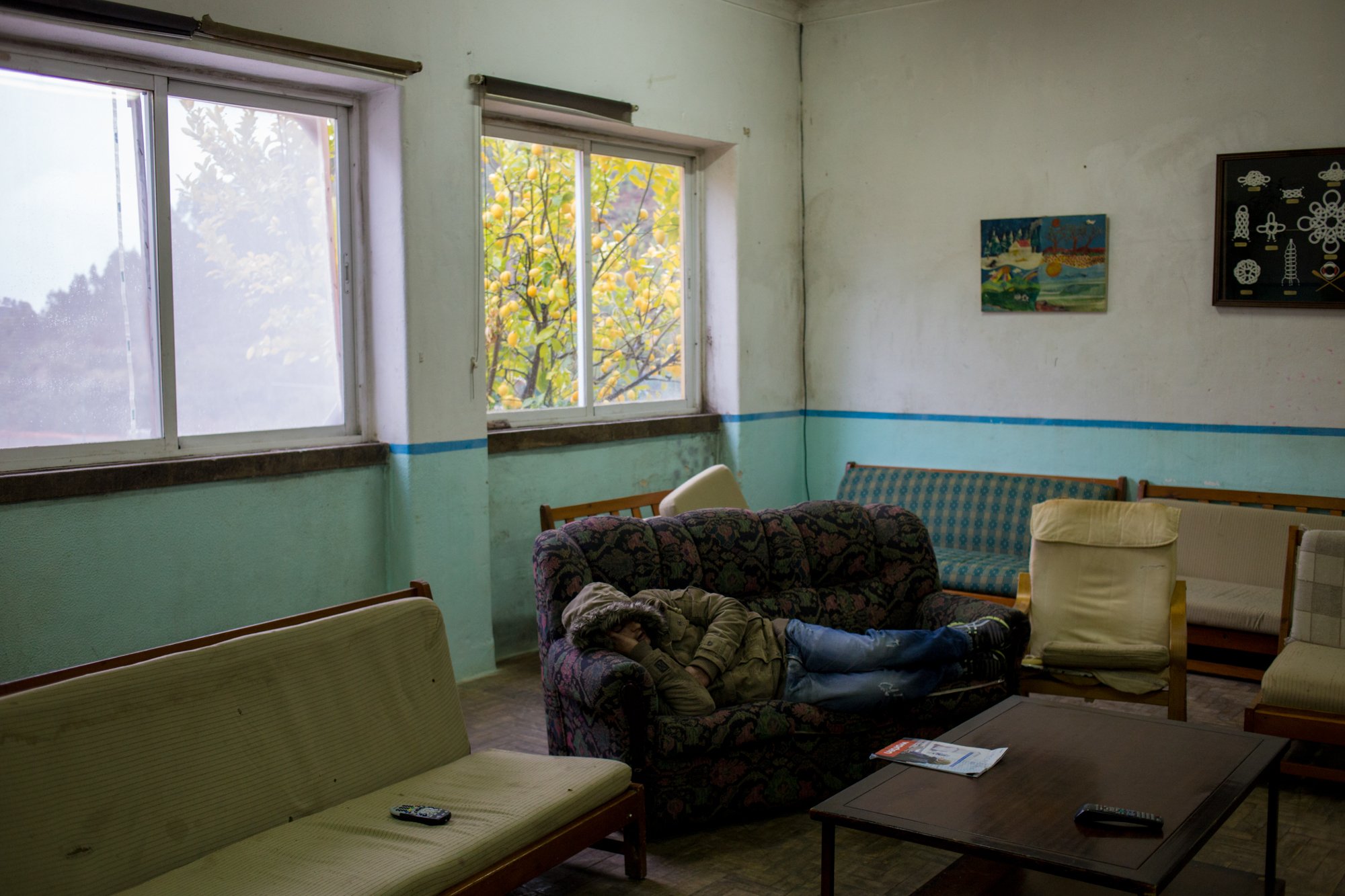
A man takes a nap at the Ares do Pinhal Therapeutic Community. “Psychological addition is a life long struggle. It is something our patients will have to deal with their entire lives” says Dr. Paulo Lopes, the president of this NGO. 10/02/2017
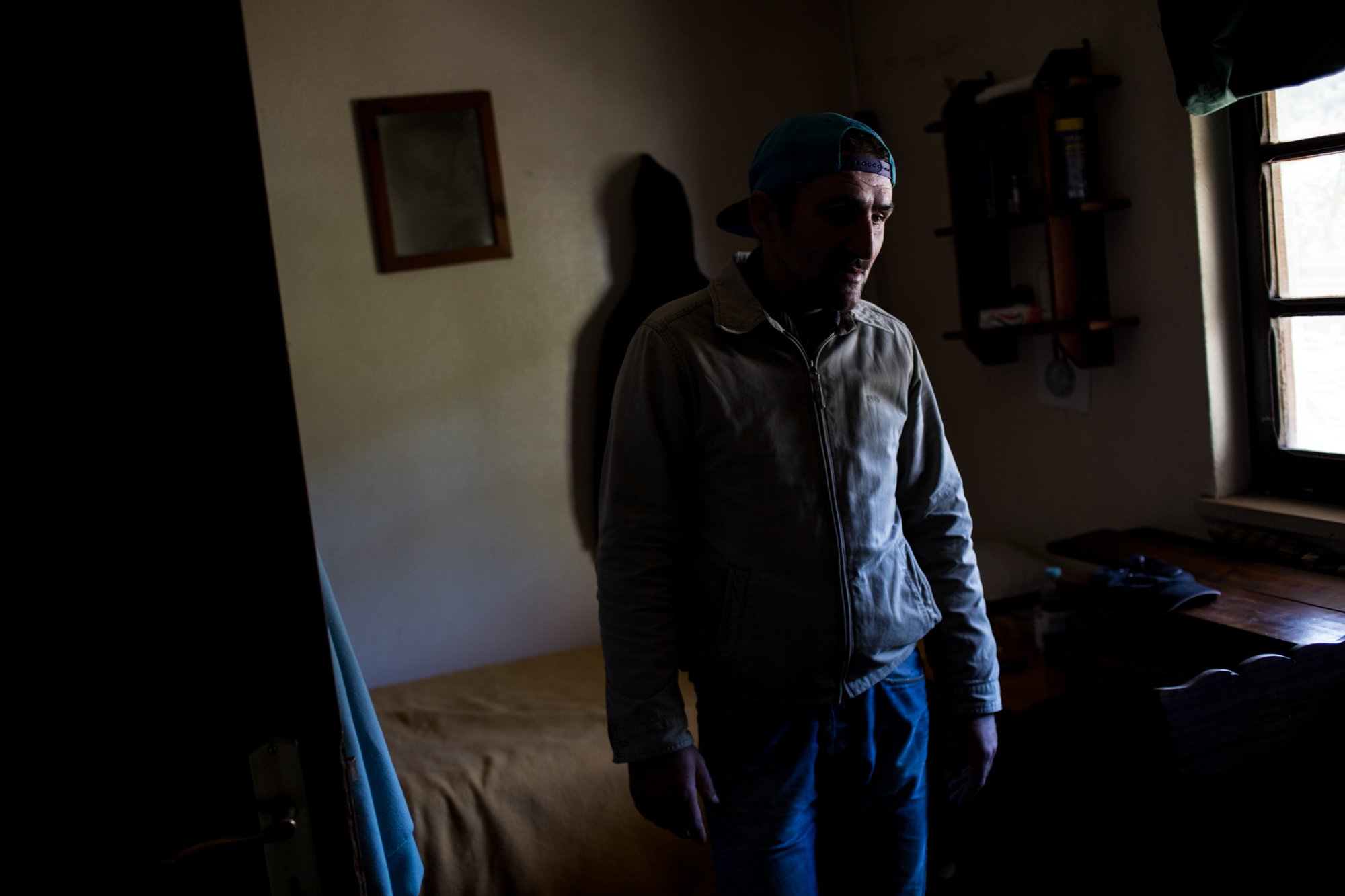
Carlos* (right), in his room at the Ares do Pinhal Therapeutic Comunity.
*name changed 30/03/2017
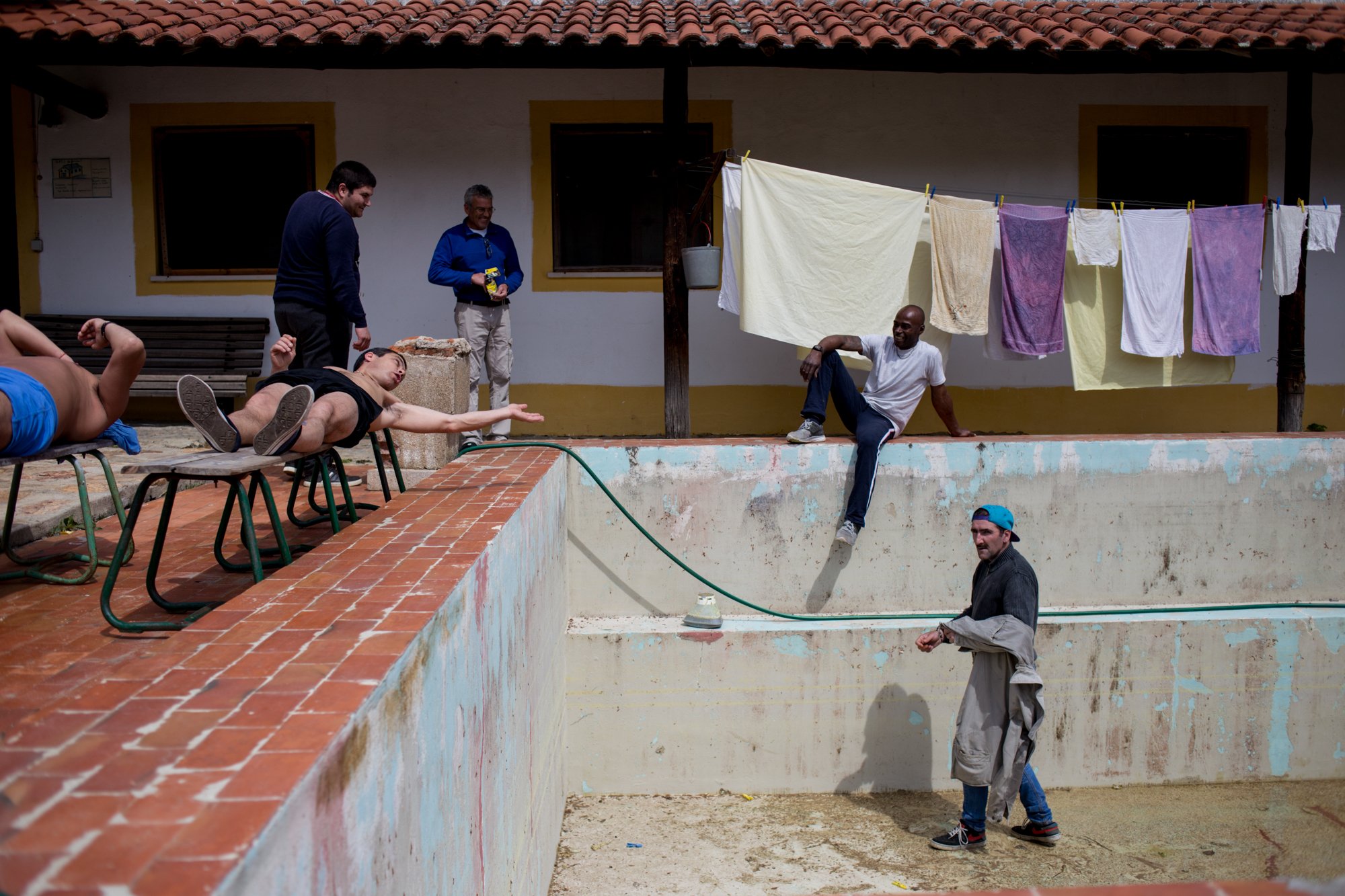
Carlos* (right), step on to the swimming pool, which is being renovated, whilst other patients at Ares do Pinhal Therapeutic Comunity look on.
*name changed 30/03/2017
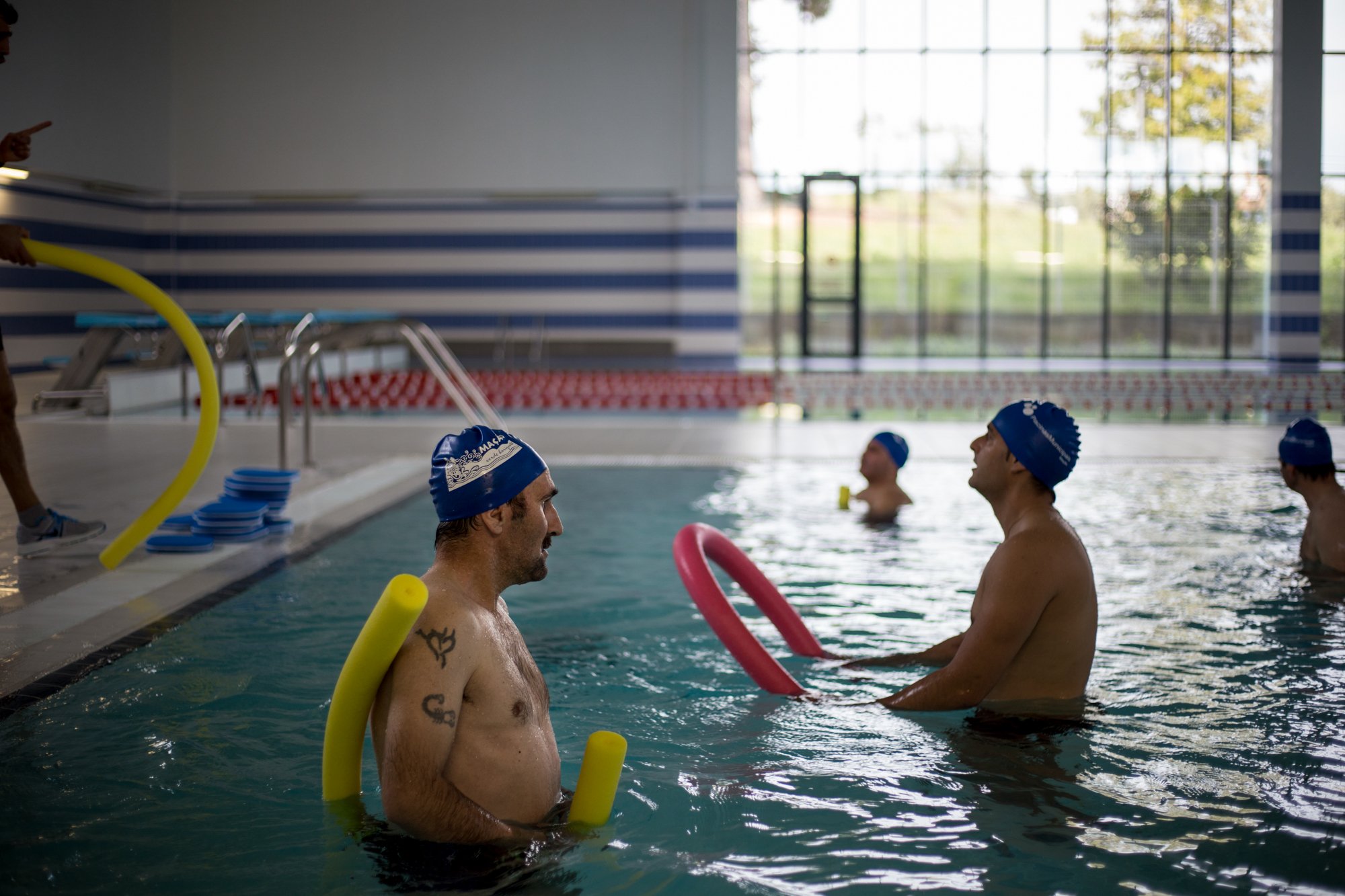
“When I got here two months ago I had to undress myself for the medical checkup. The doctor looked at me and said ‘You truly are a human skeleton. You got here just in time’." Carlos recalls, while patting his new formed belly in the locker room before his weekly hydro gymnastics class *name changed 30/03/2017
How Portugal Won the War on Drugs is a project shot between 2017 and 2021, to mark the 20th anniversary of drug decriminalization in the country, it was published in TIME and Newsweek Japan
In 2001, facing a heroin epidemic, lawmakers decided to invest in harm reduction strategies and began treating people with addiction as patients who needed help, not as criminals who should be persecuted. Now, twenty years on, Drug Decriminalization was a success, and the rest of the globe seems to be catching on. Just last November, the state of Oregon passed a similar law in what amounted to a powerful rebuff to the “War on Drugs” policy.
This work, shot between 2017 and 2021 shows what makes Portugal’s policy so unique, documenting the front-line work by outreach teams, methadone replacement programs and supervised consumption rooms to help those who are affected by addiction.